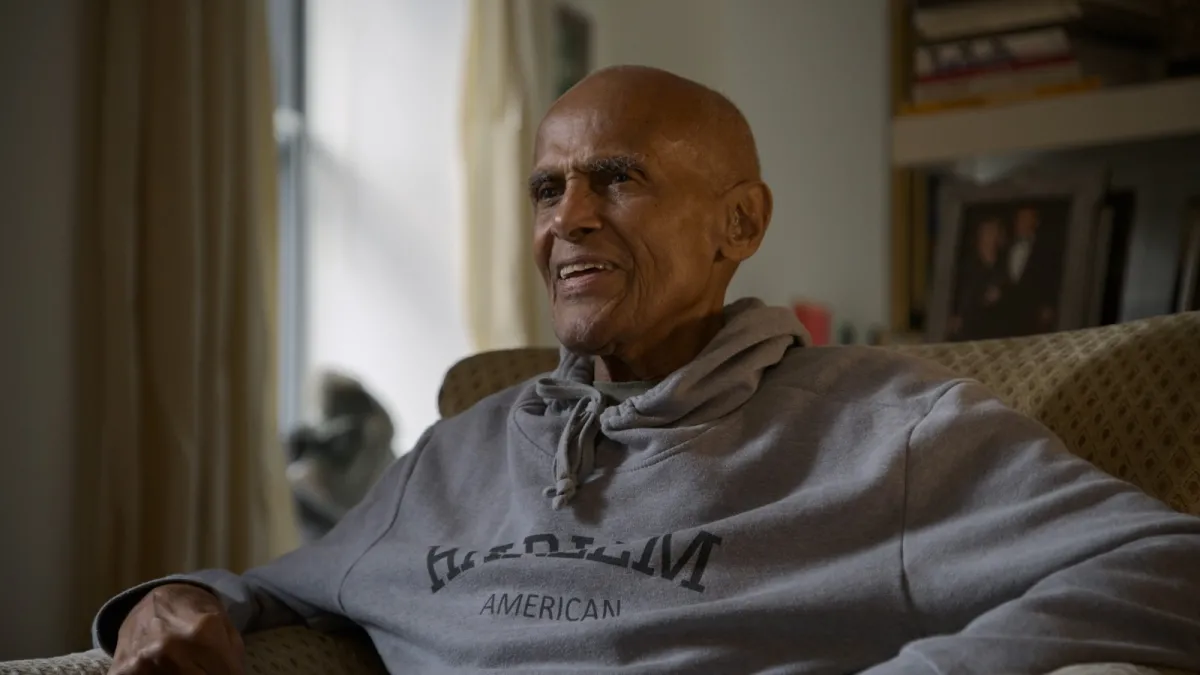

Essential Doc Reads is our curated selection of recent features and important news items about the documentary form and its processes, from around the internet, as well as from the Documentary magazine archive. We hope you enjoy!
What started as a rejected book idea has evolved into Is That Black Enough For You?!?, a documentary that is rich with archival clips and embedded with interviews from Black talent from throughout the ages. From Vanity Fair, Yohana Desta reflects on how the documentary explores Black contributions to culture, specifically in cinema.
Mitchell reexamines and exalts landmark Black cinema of the 1970s, heralding the artistic and entrepreneurial pioneers who not only shaped the decade but also created blockbuster templates that white Hollywood lifted wholesale and used for its own success. Creating a movie soundtrack and releasing it ahead of the film as a way to drive ticket sales? For that tactic, you can thank Curtis Mayfield, who released his soundtrack for the 1972 film Super Fly a month before the movie’s debut, just because he could. Introducing a film’s main character by showing them walking through New York to the sounds of a groovy disco song? Shaft did it six years before John Travolta strutted into Saturday Night Fever. (As Mitchell quips in the film: “Every generation gets its own Elvis or Eminem.”)
Matthew Carey from Deadline assesses the value of art outlined in Kelcey Edwards’ The Art of Making It. Through interviews with people positioned throughout the art ecosystem, the documentary evaluates the fragility of the art world and the risks artists take to make their place in it.
“Art is typically dialogued about more as a commodity and less as a place to exchange ideas,”. director Kelcey Edwards observed during a panel discussion after the screening. “I started to kind of become concerned that these artists who were trying to express themselves and foster important cultural dialogue about some of the most pressing issues of our time were running against the unsustainability of what they were trying to do and so many barriers to entry.”
“We were hoping to shine a light on people crazy enough to take on all this debt and receive all this education,” noted producer Debi Wisch. “And even with a terminal degree from a school like Yale, the chances of making It — which in our minds was being able to support yourself, doing what you’re trained to do — was less than 5 percent. I think you’d be hard-pressed to find any other… nonlinear profession where the chances of making it are sort of so serendipitous and risky..”
Will Tizard from Variety discusses how the Ji.hlava Documentary Festival is acting in solidarity with Ukrainian filmmakers by screening films on Russia's invasion of Ukraine, as well as hosting a conference on ethics. Funds from sale accreditations are going towards Docudays UA Festival.
Documentaries allow us to rethink the complex issues of the day, ask questions and not to succumb to stereotypes. With the Russian invasion of Ukraine, this is all the more important because it is a real milestone in the history of the 21st century. The rules that have been built up for decades have ceased to apply.
For The Guardian, Lauren Mechling discusses how Sara Terry’s A Decent Home paints an intimate and personal picture of the realities of the affordable housing crisis in the US. After six years of working on the doc, what Terry accomplishes is a human-driven story that promotes empathy on a topic previously desensitized by graphs and data.
This shift in the mobile home market is a microcosm of what’s happening across America, where more and more private equity firms are buying single-family homes and refashioning them as rental properties, putting home ownership out of reach for so many working Americans, and forcing so many communities to unravel.
The math is mind-boggling. While inflation and wage stagnation are impeding the average American’s ability to get by, rents are heading skyward.
From the archive: Fall 2010 Issue: “A Question of Ethics: The Relationship between Filmmaker and Subject”
Any filmmaker who sets out to make a documentary faces multiple challenges, not the least of which is a set of ethical issues inherent in the process. How to portray the subjects of the film? What to shoot and what not to shoot? How to edit so that the film is true to its topic and subjects, yet also works as a compelling story for the audiences? If a filmmaker is working in a foreign country or culture (or subculture), how to represent people with dignity and sensitivity to that place, time and experience?
Most people not involved in filmmaking are not entirely aware of the power of the camera and editing to structure events in ways they would never expect. At the heart of documentary, production is the relationship between filmmaker and subjects--not often an equal balance of power. And for the most part, it is the filmmaker who determines how that will be managed.
IN THE NEWS
IDA Documentary Awards and Cinema Eye Honors Reveal Influential Feature Short and Long Lists
DOC NYC Announces 40 Under 40 List
2022 Gotham Awards Nominations Full List
Cinema Eye Honors Announces Unforgettables & Audience Choice Prize Long List for 16th Annual Awards
Montreal International Documentary Festival Unveils Full 2022 Lineup
350+ Sessions Announced for the 2023 SXSW Conference
Kartemquin Films Names Amir George As Artistic Director